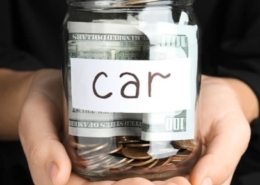The Pros and Cons of Zero Percent Car Financing
Unlock the secrets of zero percent car financing and discover if this enticing deal is truly worth it.
The Ups and Downs of 0% APR Car Financing
Zero percent car financing, often marketed as 0% APR, tempts many car buyers. On the surface, it seems like an unbeatable deal—drive away in a new vehicle without paying any interest. The allure of such offers can be incredibly compelling, particularly for those looking to maximize their budget and get the most value from their purchase.
This type of auto financing can save you thousands of dollars over the life of the loan, but it’s not always as straightforward as it seems. Factors such as eligibility requirements, loan terms, and potential hidden costs can significantly impact the overall benefit of the deal. Furthermore, car manufacturers and dealerships often use these offers as promotional tools, meaning specific conditions might be attached.
Key Takeaways
- Understand Eligibility Requirements: Zero percent car financing is typically available only to buyers with excellent credit scores, so ensure you meet the necessary criteria before applying.
- Weigh Financial Implications: While 0% APR can save you money on interest, it often comes with higher monthly payments and shorter loan terms, so assess your budget carefully.
- Evaluate Total Cost: Consider the overall cost of ownership, including any potential higher vehicle prices or restricted model options, to determine if zero percent financing is the best deal for you.
However, like all financial products, 0% APR car loans come with various advantages and disadvantages that are crucial to understand. This article explores the pros and cons of zero percent financing, providing a comprehensive look at the benefits and potential drawbacks to help you make an informed decision.
Car Buying Tip: If you’re shopping for a car, you may have noticed that finding a reasonable price in today’s market can be challenging. Many buyers end up paying more than the suggested retail price. However, don’t worry! You can still find a great deal by requesting free dealer price quotes online to compare dealer prices in your area.
Zero Percent Car Financing Explained
At its core, zero percent car financing means borrowing money to buy a car without paying interest. Car manufacturers typically offer this deal through their financing arms, available only to buyers with excellent credit.
The idea is straightforward: instead of making monthly payments that include interest, your payments go directly toward paying off the loan’s principal.
Pros of Zero Percent Car Financing
Let’s discuss the benefits of zero percent car financing, including interest-free loans, lower monthly payments, and increased purchasing power, to see how this financing option can save you money and enhance your car-buying experience.
1. Interest-Free Loans
The lack of interest payments is the most apparent advantage of zero percent car financing. This can save you a significant amount of money over the life of the loan.
For example, on a $30,000 loan over five years, a standard interest rate of 4% would cost you around $3,150 in interest. With 0% financing, you save all of that money.
2. Lower Monthly Payments
Without interest, your monthly payments are lower than with a traditional loan. This can make it easier to fit the car payments into your budget.
Lower payments can also free up cash for other expenses or investments, improving financial flexibility.
- How to Buy a New Car Below Factory Invoice Price – True dealer cost and the factory invoice price are not the same… dealer cost can be much lower.
- Figure a Fair Profit New Car Offer – How to calculate a fair profit new car offer.
- How to Buy a New Car Online – Not sure where to start? Use my step-by-step guide on how to buy a new car online.
3. Encourages Financial Responsibility
Zero percent financing often comes with strict terms, including a good to excellent credit score requirement. This encourages buyers to maintain good credit habits and means that those who qualify are typically more financially stable and less likely to default on the loan.
4. Boosts Purchasing Power
With no interest to worry about, you might find it easier to afford a higher-end model or additional features. This can make getting a car that better suits your needs and preferences possible without breaking your budget.
5. Potential for Additional Incentives
Dealerships may offer additional incentives when you opt for 0% financing. These can include cashback offers, extended warranties, or free maintenance packages. These extras can add significant value to your purchase and enhance the deal’s attractiveness.
Cons of Zero Percent Car Financing
Now, let’s look at some of the possible drawbacks of zero percent car financing, such as limited availability, shorter loan terms, and potentially higher upfront costs, to understand the potential challenges of this financing option.
1. Limited Availability
Zero-percent financing deals are not available to everyone. They are typically reserved for buyers with excellent credit scores, often 700 or higher.
If your credit is less than stellar, you may not qualify for these offers, which can be frustrating if you’ve been eyeing a particular deal.
This information is not customarily provided upfront to get customers to “come in” to the dealership. Dealers must disclose details of a zero percent deal in the disclaimer section of their print, radio, or online advertisement.
2. Shorter Loan Terms
To minimize their risk, lenders often offer 0% financing only on shorter loan terms, such as 36 months, instead of the more typical 60 or 72 months.
While this means you’ll pay off the car faster, it also means higher monthly payments, which can strain your budget. This will not be an issue if a larger down payment is available for your purchase.
3. Restricted Vehicle Options
Zero percent financing is usually available only on specific models, often those the manufacturer is eager to move off the lot. This can limit your choices, forcing you to select from a narrower range of vehicles rather than getting the car that best meets your needs.
4. Potential for Higher Initial Costs
While the financing is interest-free, dealerships may be less willing to negotiate on the price of the car. You might find that you pay more for the vehicle upfront than you could deal with a traditional loan that includes interest.
5. Risk of Deceptive Practices
Some dealerships might use the promise of 0% financing as a bait-and-switch tactic. You could find yourself at the dealership only to be told you don’t qualify for the 0% offer, but they have other “great” financing options. This can be a frustrating and time-consuming experience.
Real-Time Bargain Hunting: Turn to Edmunds for instant access to the latest and greatest local deals, saving you time, money, and stress.
Comparing Zero Percent Financing with Traditional Loans
When deciding between zero percent financing and traditional loans, the total cost of ownership must be considered. A conventional loan with a low interest rate might offer better terms on the car’s price or include rebates that 0% financing doesn’t.
Always calculate the total amount paid over the loan’s life, including any additional fees or charges.
- Interest Savings: Zero percent financing eliminates interest costs, while traditional loans include interest payments.
- Monthly Payments: Zero percent financing typically requires higher monthly payments due to shorter loan terms.
- Eligibility Requirements: Zero percent financing often requires excellent credit scores, whereas traditional loans may have more lenient criteria.
- Vehicle Options: Zero percent financing is usually available for select models only, while traditional loans apply to a broader range of vehicles.
- Total Cost of Ownership: Traditional loans might offer better deals on the vehicle price or include rebates that zero percent financing doesn’t.
Is Zero Percent Car Financing Right for You?
To determine if zero percent car financing is right for you, consider your financial situation and ability to meet the strict criteria often required. Assess your credit score, your budget for monthly payments, and how long you plan to keep the car. If you can afford higher payments and plan to keep the car long-term, 0% financing might be a great option.
However, a traditional loan might be better for you if you need lower payments or want a more comprehensive selection of vehicles.
Understanding the Fine Print
Always read the fine print before signing any financing agreement. Zero percent deals often come with specific conditions and restrictions. Look for any clauses that could affect your loan, such as penalties for late payments, requirements for down payments, and potential fees. Understanding these details can help you avoid surprises and ensure the deal is as beneficial as possible.
Alternatives to Zero Percent Car Financing
Consider other financing options if you don’t qualify for zero percent financing or the terms aren’t suitable. Traditional auto loans, leasing, and even personal loans can offer competitive rates and terms.
Use the internet’s power to shop around and compare offers from multiple lenders to find the best deal for your financial situation.
Common Myths About Zero Percent Financing
There are several misconceptions about zero percent financing. Some buyers believe it’s available to everyone or applies to all models. Others think it’s a long-term deal with no hidden costs. Understanding these myths can help you approach 0% financing with realistic expectations and avoid potential pitfalls.
How to Negotiate a Car Deal
Negotiating the best car deal requires preparation and strategy. Start by researching the car’s market value and any available incentives. Be prepared to walk away if the dealer refuses to meet your terms.
Remember, you can often negotiate the car’s price separately from the financing terms. Getting pre-approved for a loan online or from a bank or credit union can give you additional leverage in negotiations.
Conclusion: Finding the Right Car for Your Lifestyle
Zero percent car financing can be an excellent way to save money on a new car, offering the significant advantage of interest-free payments. This can lead to substantial savings over the life of the loan, making it an attractive option for many buyers. However, it’s not without its drawbacks. Limited availability, stringent eligibility criteria, and the potential for higher upfront costs can complicate the decision.
By understanding the pros and cons of zero percent financing, you can make an informed decision that aligns with your financial situation and vehicle needs. It’s essential to weigh the benefits, such as lower monthly payments and interest savings, against the potential challenges, like limited vehicle choices and stricter loan terms.
Whether you choose 0% financing or another financing option, being well-informed will help you navigate the car-buying process confidently and efficiently. Knowledge of all available options allows you to select the best financing method, ensuring your new car purchase is financially sound and personally satisfying.
FAQs About 0% APR Financing
What is zero percent car financing?
Zero percent car financing is a loan offer in which the buyer pays no interest on the borrowed amount. It is typically provided by car manufacturers for promotional purposes.
Who qualifies for zero percent financing?
Generally, buyers with excellent credit scores (typically 700 or higher) qualify for zero percent financing. Lenders also look at your credit history, income, and debt-to-income ratio.
Are there any hidden costs with zero percent financing?
While the financing is interest-free, there can be other costs, such as higher vehicle prices or fees for late payments. Always read the fine print.
Can I negotiate the price of the car with zero percent financing?
Negotiation can be more challenging with zero percent financing, as dealers may be less flexible on the price. However, it’s still possible to negotiate, especially if you’re well-prepared.
Is zero percent financing available for used cars?
Zero percent financing is typically reserved for new cars. However, some dealers may offer promotional rates on certified pre-owned vehicles.
What should I consider before opting for zero percent financing?
Consider your credit score, budget, loan term, and total cost of ownership. Ensure you can meet the monthly payments and that the car suits your needs.

















